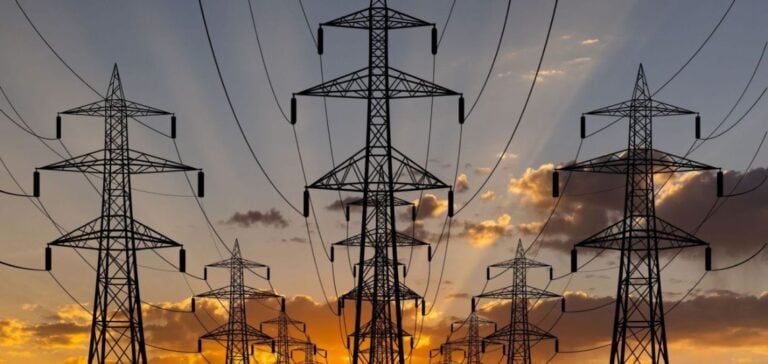The French Energy Regulatory Commission (CRE) has decided to postpone the application of the increase in the “network tariff” (TURPE) until February 1, 2025.
This decision comes after a series of tariff adjustments linked to fluctuations in the electricity market, creating an incomprehensible “yo-yo” effect for consumers.
By postponing this 4.8% increase, which would normally have taken effect on August 1, 2024, the CRE is seeking to provide greater clarity and predictability of energy costs for households and small businesses in France.
TURPE represents a significant proportion of the electricity bill, covering the costs of electricity transmission by network operators such as Enedis.
This delayed increase should have led to a rise of almost 1% on the bills of EDF’s blue-rate customers.
However, by postponing the increase until February 1, the usual date for revising the TRVE (regulated electricity sales tariffs), the CRE hopes that it will be offset by an anticipated fall in electricity prices on the wholesale market.
Electricity price forecasts for early 2025
Electricity prices on European markets have shown signs of stabilizing at around 60 to 70 euros per megawatt-hour (MWh) in recent months.
This represents a clear improvement on the peaks of 2022, caused by the crisis in Ukraine and post-Covid disruptions.
Against this backdrop, CRE forecasts a drop of at least 10% in VERTs in February 2025, a first since the start of the energy crisis.
This estimated reduction incorporates the delayed increase in TURPE as well as the planned increase in the excise duty on electricity, which is currently being reinstated after being temporarily adjusted in response to the energy crisis.
In June, the French Minister of the Economy, Bruno Le Maire, stated that the electricity bill for French households could fall by 10-15% as early as February 2025, providing a much-needed boost for consumers.
Consequences for households and market offers
For households with regulated tariffs, a 10% reduction could mean a saving of around 200 euros a year, based on an average annual bill of 2,000 euros.
This reduction comes at a time of pressure on energy costs, where prices have risen by over 43% in two years despite government support measures.
It is important to note that the TURPE increase will apply from November 1, 2024 for the 17.5 million households and businesses that have subscribed to market offers indexed to wholesale prices.
However, electricity suppliers can choose whether or not to pass on this increase to their customers.
According to the CRE, few of them are likely to do so, as their market offers are currently around 20% lower than the TRVE prices.
This could create a competitive dynamic where market offers become more attractive for certain customer segments.
Regulation as a lever for stability
Tariff regulation by the CRE aims to mitigate the impact of volatile electricity market fluctuations on end consumers.
The postponement of the TURPE increase until February 2025 is in line with this logic of managing tariff volatility.
This is crucial at a time when electricity is becoming an increasingly predominant energy source, particularly to support the gradual decarbonization of France’s energy mix.
Electricity infrastructure requires ongoing investment to ensure security and quality of supply, and these costs are partly covered by TURPE.
CRE’s decision to maintain this increase, albeit with a time lag, reflects a balance between the need to finance the grid and the desire to protect consumers from sudden price rises.
Future challenges for the French electricity sector
In the future, managing the costs of energy and associated infrastructure will remain a key challenge for regulators and market players alike.
TURPE’s annual tariff adjustment mechanism will need to be carefully calibrated to avoid weighing on business competitiveness and household purchasing power, while ensuring adequate funding for electricity infrastructure.
The transition to greater use of electricity as an alternative energy source will also require ongoing adaptation of pricing and regulatory policies.
The CRE’s recent decisions illustrate this complexity and the need to maintain a constant dialogue between the players in France’s energy value chain.





















